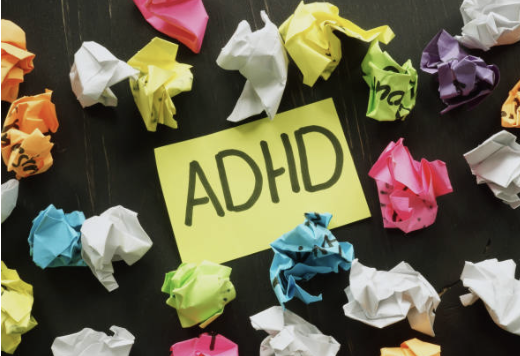The Unexpected Benefits of ADHD
Kelly Anderson, PhD
Attention-Deficit/Hyperactivity Disorder (ADHD) often brings to mind challenges like forgetfulness, impulsivity, or difficulties with focus. This is all true when you are experiencing undiagnosed or unmanaged ADHD. However, for individuals with well-managed ADHD, things can look very different! Proper treatment and coping strategies can help you to minimize or eliminate the aspects of ADHD that create difficulty or problems in your life, to allow space for the parts of ADHD that can be viewed as strengths.
Well-Managed vs. Unmanaged ADHD
Let’s start by making a big clarification. Before you can access the amazing benefits of ADHD, you’re symptoms have ot be well-managed. Unmanaged ADHD can lead to struggles in almost every aspect of life. From chronic disorganization and missed deadlines to emotional outbursts and strained relationships. These challenges often affect work, school, and home life, leading to feelings of frustration, low self-esteem, and even mental health conditions like anxiety or depression.
On the other hand, managed ADHD unlocks a world of potential. By using treatments like therapy, medication, mindfulness, and organizational tools, individuals with ADHD can channel their energy toward productivity, creativity, and success. Research consistently shows that a comprehensive ADHD treatment plan significantly improves outcomes by reducing stress and enhancing daily functioning. Many individuals with neurodivergence find that when the unhelpful symptoms are well-managed, they have many strengths neurotypical folks don’t have!
Hidden Superpowers of ADHD
Creative Problem-Solving
People with ADHD often see the world differently. In childhood, this is often pathologized (e.g., when children don’t learn the same way that their neurotypical peers might) or deemed as odd and quirky in adulthood. However, this is one of the best ADHD superpowers. Studies indicate a possible connection between ADHD and enhanced creative thinking, especially in divergent thinking. This refers to the ability to generate numerous original and unconventional ideas. Individuals with ADHD may excel in this area due to their less constrained thought processes and natural ability to form unexpected connections between concepts. This type of nonlinear thinking enables them to connect ideas in innovative ways, leading to fresh solutions and groundbreaking discoveries.
A word of caution: If not managed effectively, this strength can lead to overcomplicating simple solutions or diverting focus to less critical aspects of a problem. The tendency to leap to new ideas without fully evaluating them can also create inefficiencies or missed opportunities. Balancing creativity with critical thinking and planning ensures that inventive solutions remain practical and impactful.
Hyperfocus on Passion Projects
While attention can wander on mundane tasks, ADHD brains often lock in with laser focus on areas of interest. Hyperfocus can allow individuals to dive deeply into a passion, master various skills, or acquire knowledge at an accelerated rate. For example, learning to play an instrument, perfecting a craft, or excelling in a complex video game can come more naturally during periods of hyperfocus. This can lead to high productivity in professional spaces and attention to detail in specialized tasks. Interpersonally, many people with ADHD are known for their ability to listen and empathize deeply. Hyperfocus may enhance active listening and attentiveness, which can foster a sense of being truly heard and valued in relationships. In relationships, hyperfocus can drive individuals to research solutions, plan events, or solve problems that improve the well-being of those they care about improving the quality of relationships.
A word of caution: While hyperfocus can be powerful, it’s important to address its challenges—such as neglecting other responsibilities or becoming overly fixated on unproductive tasks. Strategies like using reminders, practicing mindfulness, and setting boundaries can help channel hyperfocus productively.
Resilience Under Pressure
Many individuals with ADHD thrive in high-stakes situations, channeling their energy and adaptability into tackling challenges head-on. Resilience encompasses the ability to adapt, recover, and thrive in the face of challenges. This trait is often rooted in the lived experience of navigating a world that can feel misaligned with their unique way of thinking. ears of overcoming challenges related to ADHD—such as managing deadlines or coping with disorganization—can foster a unique capacity to think quickly and pivot when situations change unexpectedly. Individuals with ADHD often learn from setbacks and bounce back with increased determination, building emotional strength and fostering a positive outlook in difficult times. Under high-stress situations, such as tight deadlines or emergencies, the ADHD brain often kicks into high gear, producing focused and creative solutions when others might falter. Resilience can inspire friends, family, or colleagues, showing that setbacks are not roadblocks but opportunities for growth and innovation.
A word of caution: Unchecked resilience can backfire. Constantly pushing through adversity without taking the time to rest or reflect may lead to burnout or emotional exhaustion. Additionally, a "never give up" mindset can sometimes result in sticking to counterproductive situations longer than necessary. Balance resilience with self-awareness such as building upon past successes by reflecting on difficult moments you’ve overcome and developing routines or mindfulness practices to remain calm during high-stress scenarios.
Boundless Energy
Managed ADHD often comes with a seemingly endless reserve of energy. When directed purposefully, this enthusiasm can inspire and motivate others, making people with ADHD natural leaders and innovators. High energy, while often seen as a hallmark of ADHD, is a tremendous asset when channeled effectively, fueling both productivity and interpersonal vibrancy. With well-directed energy, individuals can achieve personal milestones quickly and efficiently. High energy can lead to a more physically active and health-conscious life, contributing to long-term wellness. Professionally, high levels of energy allow for periods of exceptional productivity, especially when tasks are engaging or aligned with passions.
A word of caution: Unregulated high energy can lead to impulsivity, burnout, or difficulty sustaining focus over time. Overcommitting to tasks or projects due to enthusiasm can also result in incomplete work or frustration. Additionally, in social settings, excess energy might come across as overwhelming or intrusive if not modulated. Learning to recognize and manage the balance between energy and rest ensures this trait remains a strength rather than a challenge.
Find Your Path to Managed ADHD
In addition to these superpowers, research has linked ADHD with better-than-average social skills, a zest for life, curiosity, innovation, and creativity. While coping with the symptoms associated with ADHD can be difficult, there are so many aspects to ADHD that can be assests and strengths.
If you’re wondering how to go from overwhelmed to mastering your symptoms to improve your life, getting support from an expert trained in working with ADHD may be a good next step!


